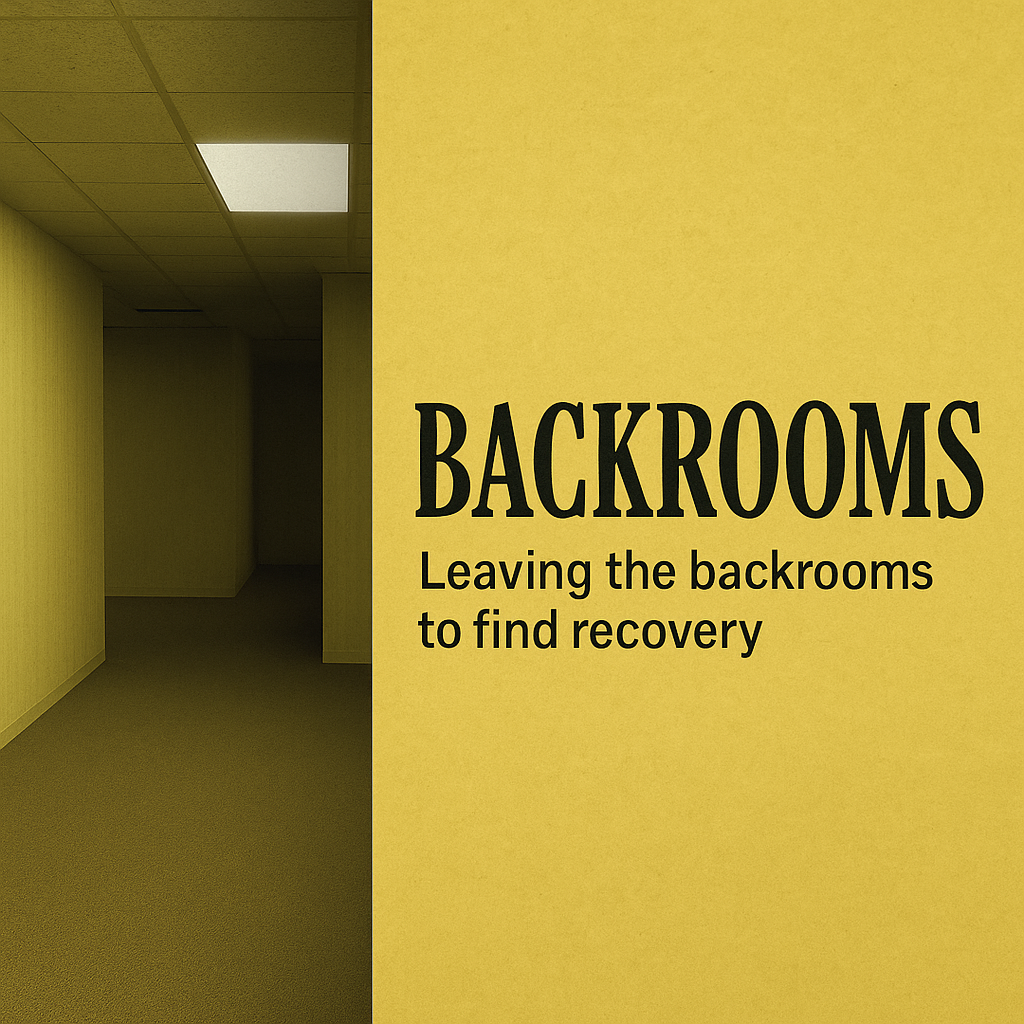There’s a haunting internet myth called The Backrooms. Maybe you’ve heard of it—a liminal, uncanny dreamscape made up of endless yellow hallways, stained carpets, and flickering fluorescent lights. It’s what happens when you “noclip” out of reality, the story goes. You’re trapped in an infinite architectural purgatory. No exit. No landmarks. Just the hum of isolation and the eerie feeling that you’ve been here before.
It started as a 4chan post, a single image with a warning: “If you’re not careful and you noclip out of reality in the wrong areas, you’ll end up in the Backrooms.” From there, it spiraled into a shared horror mythos—dozens of “levels,” monsters, survivor logs, and short films that feel so visceral you could swear you’ve walked through those halls yourself.
The unsettling thing about The Backrooms isn’t gore or monsters. It’s the idea of being lost in a place that looks almost familiar. It evokes the strange, empty vibe of an abandoned school, a forgotten office, or a dead mall at 3 AM. The same places we pass through in life without ever really noticing.
And for some of us, that hits a little too close to home.
The Other Back Rooms
In addiction, the term “backroom” meant something else entirely. Not a myth. Not a simulation. Something far more real—and, for a time, sacred.
Every bar had one. Sometimes it was a kitchen, a supply closet, or just a dim booth behind the jukebox. But it was where the real action happened. Not the shallow banter at the bar top. Not the forced laughs or NFL commentary that made me want to grind my teeth. No—the backroom was where the truth lived.
It’s where narcotics were shared. Where conversations drifted into philosophy, insanity, or unhinged humor. It’s where I found my people: the freaks, the damaged, the storytellers. People who didn’t have to perform a mask of normalcy. That backroom was my sanctuary—but it was also my trapdoor.
Phasing Out of Reality
Late-stage addiction is like slipping into The Backrooms. You don’t even realize you’ve left reality behind. You think you’re social, alive, participating—but your body’s in one place while your mind drifts endlessly down corridors of memory, fantasy, regret, and longing. You’re ruminating. Re-feeling. Re-playing.
Resentment—literally “to feel again”—keeps us stuck in that backroom. And while it might seem like a retreat, it’s not. It’s a place where we confuse memory for reality and idealism for identity. A place where we become more ourselves than ever, yet totally unrecognizable to the people who love us.
Living Two Lives
Addiction splits us. There’s the “front room” life: jobs, bills, relationships, group therapy, AA meetings. And then there’s the dream life—the one that happens in our heads, where we imagine different outcomes, confront old traumas, or script revenge fantasies. It becomes intoxicating. But the longer you live in it, the more alien the front room feels. Real life starts to feel like the hallucination.
Eventually, even that fantasy fails you. There’s no buzz strong enough. No one interesting enough. The backroom stops being an escape and starts being a prison.
Leaving the Backrooms
Recovery doesn’t kill the fantasy. It simply reveals it for what it is: a betrayal. A beautiful lie that kept you alive but now keeps you sick. Recovery gives you a choice: do you keep wandering those empty corridors of regret, or do you risk connection, forgiveness, and the terrifying simplicity of being awake?
Because that’s the real truth: the front room—reality—isn’t always pretty, but it’s where your daughter’s laugh lives. It’s where the person who forgave you yesterday is still rooting for you today. It’s where discomfort is real, but so is agency. So is love.
And maybe we don’t need to burn the backrooms down. Maybe we just need to walk out. We just need to stop mistaking dreams for safety and finally start breathing again, for real.
Sources & References:
- The Backrooms mythos (origin and cultural spread):
https://backrooms.fandom.com/wiki/The_Backrooms_Wiki
https://www.youtube.com/@kanepixels - Rumination and Addiction:
Nolen-Hoeksema, S. (2000). The role of rumination in depressive disorders and mixed anxiety/depressive symptoms. Journal of Abnormal Psychology.
https://doi.org/10.1037/0021-843X.109.3.504 - Resentment & Memory:
Elster, J. (1999). Strong Feelings: Emotion, Addiction, and Human Behavior. MIT Press. - Trauma and Dissociation:
van der Kolk, B. (2014). The Body Keeps the Score: Brain, Mind, and Body in the Healing of Trauma. - Dharma Recovery & Ego Dissolution:
Refuge Recovery: A Buddhist Path to Recovering from Addiction – Noah Levine (2014)
https://refugerecovery.org
